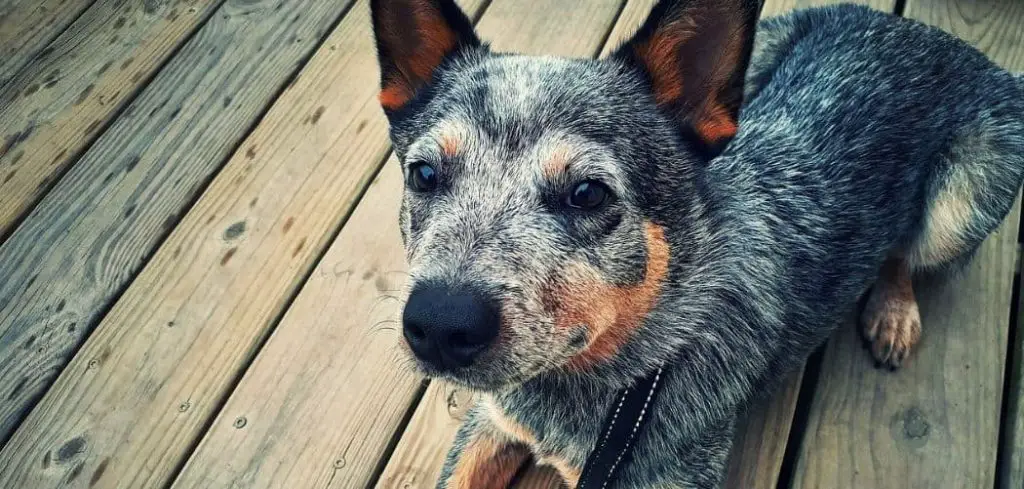Few things worry and confuse dog owners more than seeing their dog vomit and then immediately eat it. While this behavior is unpleasant to watch, it’s not uncommon in dogs and can be a sign of instinct, illness, or nutritional imbalance.
The act of vomiting itself is concerning, and when paired with eating it, owners often wonder whether to worry or if it’s simply “normal dog behavior.”
We outline the common reasons why a dog being sick (vomiting) and then eating it may happen, what you can do at home, and when to seek veterinary help.
Dog Being Sick and Eating It — Why It Happens
A dog vomiting and eating the vomit afterward can be driven by instinct or illness. Some dogs do this because their ancestors were scavengers who couldn’t waste food, while others do it because they are nauseous, anxious, or nutritionally deficient.
Illnesses like gastritis, intestinal parasites, or even dietary indiscretions can cause vomiting in the first place. The behavior of consuming vomit does not erase the underlying cause — which is often the more serious part of the equation.

Dog Being Sick and Eating It: Common Causes
Natural Scavenger Instinct
Dogs are natural scavengers, and this behavior is rooted in survival. In the wild, food sources were not always reliable, so no nutritional material was wasted.
When a dog vomits partially digested food, they may instinctively eat it to reclaim nutrients.
While this behavior is technically normal, repeated vomiting is not and should always be taken seriously.
Read more: Dog Being Sick and Pooping Blood (Why you should act fast)
Gastritis or Stomach Irritation
One of the most common causes of vomiting in dogs is gastritis, which occurs when the stomach lining is irritated or inflamed.
This can happen if a dog eats spoiled food, garbage, or something toxic. The vomit often contains partially digested material that still smells like food, prompting the dog to eat it again.
Unfortunately, this can lead to repeated cycles of vomiting and re-ingesting, further aggravating the stomach.
Dietary Indiscretion
Dogs are notorious for eating things they shouldn’t, from table scraps to non-food objects.
When this happens, their stomach often rejects the material, leading to vomiting. Because the expelled material still smells appealing, many dogs will eat it again, sometimes worsening the cycle.
This behavior can become dangerous if the original item was harmful, such as chocolate, fatty food, or bones.
Intestinal Parasites
Parasites like roundworms, hookworms, and whipworms can cause vomiting, diarrhea, and general stomach upset.
Dogs suffering from parasitic infections may vomit partially digested food or mucus. Since they often remain hungry due to poor nutrient absorption, they may eat their vomit in an attempt to fill their stomach.
Parasite infestations can also cause weight loss, dull coat, and weakness if left untreated.
Nutritional Deficiency
Dogs who aren’t getting enough essential nutrients from their diet may show unusual eating behaviors, including consuming vomit.
This is sometimes seen in dogs fed low-quality diets or unbalanced homemade meals.
A deficiency can make dogs feel compelled to re-ingest vomited material as though their body is trying to recover lost nutrition. Proper dietary adjustments often resolve this issue.
Anxiety or Behavioral Issues
Some dogs vomit due to stress or anxiety, particularly during car rides, changes in routine, or separation from their owners.
In these cases, eating the vomit can be a displacement behavior or simply an attempt to eliminate evidence of an accident.
While less medical in origin, this behavior still indicates underlying distress that needs to be addressed.
What to Do
If your dog vomits once and then eats it, you don’t need to panic, but you should observe closely. Remove the vomit promptly if possible to discourage the behavior.
Make sure your dog has access to fresh water, as vomiting can cause dehydration.
Withhold food for several hours (unless otherwise instructed by your vet) to give the stomach time to settle.
Afterward, you can offer a bland diet such as boiled chicken and rice in small portions. If your dog continues vomiting, seems weak, or shows additional symptoms, contact your veterinarian immediately.
You can also evaluate their diet to ensure it’s balanced and nutritionally complete. If the behavior seems linked to stress, addressing the root cause of anxiety through training, routine, or veterinary advice can help.
When to Call or Visit Your Vet
Seek veterinary help if your dog:
Vomits repeatedly or multiple times in a day.
Has blood in the vomit or stool.
Appears lethargic, weak, or in pain.
Refuses food or water for more than 24 hours.
Shows signs of parasite infestation such as weight loss or a dull coat.
These signs may point to infections, toxins, or other conditions that require immediate veterinary care. Even if your dog eats the vomit without hesitation, the cause of the vomiting itself is always worth investigating.
Read more: Dog being sick and lethargic (What this means)
Key Takeaway
A dog being sick and eating it may look shocking, but the act of eating vomit is often less concerning than the reason your dog vomited in the first place.
While some dogs do it out of instinct or habit, frequent vomiting is never normal and should not be ignored.
Monitor your dog, adjust their diet if necessary, and seek veterinary help if symptoms persist. Acting quickly ensures your dog stays healthy and prevents small problems from becoming major health issues.
